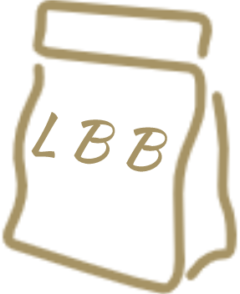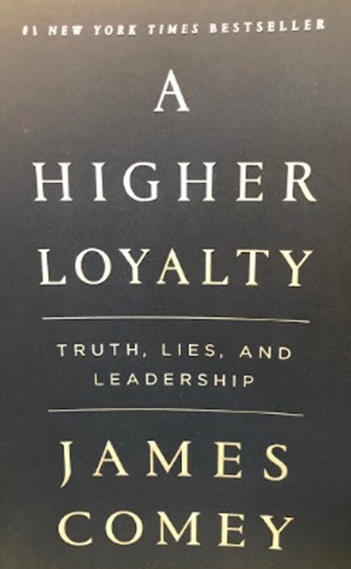Conventional wisdom says that changing or creating new habits is challenging. However, leaders must exhibit good practices with their teams to be successful.
I’ll say that habits are the foundation for successful leaders.
If that’s true, then how do habits affect leadership style? Although charisma, charm, and character go a long way in leadership, it’s the habits that are the catalyst for effectiveness.
Here are three reasons why habits are instrumental in leadership.

Photo by Andrea Piacquadio
Good Habits=Positive Behavior
Have you had a yeller for a boss? That’s a habit he/she probably developed early in their career. It’s possible to chalk these examples up as personality quirks or characteristics. However, there’s more to it than that.
Building a habit takes time. How many times did your yelling boss see/hear yelling before? And, how many times has this same boss used yelling to get a result? We condition ourselves to do what gets results.
Consider Pavlov’s dog experiment. The dog salivated at the ring of a bell when food was presented or not. Similarly, Charles Duhigg explains this concept in his book The Power of Habit.
Conversely, when we have good habits, we exhibit good behavior. Leaving for work on time each day is a habit. Preparing for the next day the night before is a habit. Meal prepping, sleep schedule, meal routines, and driving are all habits.
Leaders who have good habits can give more to their organizations because their positive behaviors result from a good life practice.

Photo by Sora Shimazaki
Good Habits Create Opportunities
I once worked at an ice cream shop and was tending to my regular duties. One day, a man came in, and as usual, I greeted him with a grin.
He was impressed by the service I gave him, and he offered me a job at his coffee shop on the spot. Although I declined the offer, he realized that I developed a habit of excellent customer service.
Similarly, I had a co-worker about to retire from the military when he received a prestigious opportunity for a new position.
It was a prominent job for his rank, and he accepted it willingly. I always admired him for his dedication and for the work ethic he had. His work habits helped him to get where he is today.
Arguably, one of the best habits to develop is consistency. Are you present when you need to be present? In high-stress situations, what are your priorities? When the team needs you most, are you reliable or not?
Band of Brothers
I once read a book called Band of Brothers by Stephen E. Ambros, who addressed this very topic. Band of Brothers is a real-life account of World War Two paratroopers who fought on the front lines in the European theater.
One company commander in the book named Lieutenant Dyke would go missing during a battle’s critical part.
Conversely, a different commander named Captain Winters would lead his troops on raids and highly complex maneuvers.
By comparing Lieutenant Dyke and Captain Winters, it’s obvious who was the better leader. Leaders like Captian Winters are as valuable as gold in a team environment. Captain Winters-like people are dependable and perform their jobs with professionalism.
Unfortunately, the Lieutenant Dykes of the world achieve leadership positions as well. Make your own guidance when you have a Lieutenant Dyke as a boss. You can be that positive influence on the team. Be consistent with your employees, and they will respect you.

Photo by Jopwell
You Become More Effective
Stephen R.Covey’s book the Seven Habits of Highly Effective People highlights this point. It may seem obvious that the more good habits you develop, the more effective you’ll be. But what stops us from developing good habits?
Our bad habits overshadow good ones because they’re sometimes more attractive.
For instance, how many alarm clock snooze bars have ruined morning workouts? How many pounds did you regain from eating poorly after a diet? It’s not easy to develop good routines, but Covey’s book has some great recommendations.
I once had a horrible habit. I was so disorganized at work that I didn’t know where anything was. My computer was just as bad.
I had tons of tabs open on my web browser, PowerPoints, Word documents, and everything else opened at the same time all of the time. Eventually, I realized that I had to change this habit. It took a lot of work. I still have trouble with my papers and filing system. But I overcame the initial roadblock to making a change.
Similar to lifestyle choices, leadership and habits are linked. When leaders exhibit good patterns, then the team is successful.
How Do You Create Good Habits?
Charles Duhigg talked about the habit loop in his book. Here’s the loop:
-The Cue: This is a trigger. The habit begins by a specific internal or external event, or, most commonly, a stimulus.
-The Routine: When the trigger takes place, the brain goes into autopilot. For example, you see an ice cream ad (trigger); you get a craving for ice cream and go to the freezer (routine).
-The Reward: Your brain will tell you what behaviors it wants you to remember. It does this through chemicals (which I won’t get into here). You get the satisfying reward of eating ice cream, so your brain will remember your fulfilling experience.
It’ll Take Hard Work
The loop repeatedly happens in our lives because of the pleasure we feel from our behaviors. To change a bad habit, maintain the cues and rewards, but hijack the routine.
It takes some work, but according to Duhigg, there’s a way to change the routine. You’ll have to find out more about yourself. Here’s how you change a habit:
-What is the routine? It would help if you discovered your patterns. Do you get hungry after dinner, so that’s why you get ice cream? Use the habit loop to work with yourself.
-What is the reward? Next, you’re finding out what is rewarding you for your behavior. Do you enjoy the crisp and sweet taste of chocolate ice cream? Maybe, instead of eating ice cream, try another tasty treat and see what changes. Repeat this exercise and see what you find.
-What is the cue? Do you eat ice cream after dinner? What about when you sit down to watch something? Your cue will tell you when you’re going to start your routine for getting ice cream.
-What is the plan? After you have found all of the habit loop steps, make a plan for how you’ll change your routine. Changing the pattern is one of the most challenging steps because it takes the most deliberate effort.
-Do you believe you can change? Have confidence in yourself. It’s going to take time. Be patient, and work with yourself if you lapse. Find friends and family to support your efforts, too.
Conclusion
Overall, leaders have habits, both good and bad. As a leader, you have to be willing to accept the bad habits and seek to change them. Attempt to create good habits in your leadership style. You’ll be glad you did.
What habits are the most important ones to develop for leaders? Leave your answers in the comment section down below!
Books Mentioned
The Power of Habit by Charles Duhigg. Read a review here.
Band of Brothers by Stephen E. Ambros
The Seven Habits of Highly Effective People by Stephen R. Covey
Image Credit
Featured Image: Andrew Neel
3: Jopwell
Video: Random House





Such beautiful review you have done on LBB. I enjoyed reading this article, I must say though, I have never heard of this book, but I can identify all those treats of good, bad and indifference habit, all the way from a child to present.
I had so much bad habits, which I knew they were bad, but just could not brake out of it to present, being late in going places, work, and appointment is included. I was very fortunate not to get fired from any of those jobs. Now I am retired so I don’t have to worry about that.
Yeah! this article is a wake up call for me of my bad habits. I am saying this because of my business in Wealthy Affiliate, I need to discipline myself in setting goals and follow through. I am thinking of getting a copy since this article capture my attention very much; so, I believe I can gain some pointers in making some changes to my life. Thank you for sharing.
Elizabeth,
I think all of us have habits that we want to break. That’s what makes your comment so significant because everyone has things to work on. Believe me, it’s a wake-up call for me too. Thanks for your comment!
Robert
It’s easy to form habits but hard to get rid of them if they turn out to be bad habits. I often reward myself for some good or hard work, perhaps a piece of chocolate or so. It is always motivational, at least for me, because I just love chocolate. Some people have bad habits, and if they are leaders who have the habit of yelling at their employees, they need help to get rid of those habits. What can they (and the employees) do to help them stop such bad habits?
Christine,
That’s a great question! I’m partial to saying how I’m feeling if someone is yelling at me. A simple, “please speak to me kindly” goes a long way regardless of who’s yelling at you. It’s unprofessional anyway to disrespect someone, and leaders are especially culpable. So, if the boss starts yelling at someone then ask the boss to simply “please speak to me kindly” and give firm warnings that you’ll leave if they don’t change their actions. That way, it sends a message that yelling is not tolerated even between boss and employee. Also, filing complaints is also a good way to get the situation addressed. I hope that helps! Thank you for commenting.
Robert
Hi Robert,
Thanks for a thoroughly enjoyable read.
I must admit the creation of good habits (and why we have bad habits) has always fascinated me.
Your discussion around Charles Duhigg’s habit loop certainly rings true for me, as I know many of my bad habits typically have a trigger, e.g. after-dinner ice cream.
I’ve often wondered whether we can use the exact same thought process to create good habits, i.e. have a trigger to inspire us to follow through on a good habit.
Looking back at my time in a leadership role (the banking industry in the early-2000s) a habit I formed, which I believe paid dividends in the long-run, was to have a morning meeting with all staff members every single day, without fail.
It didn’t have to be lengthy, or even be used to discuss a specific subject, just a great way to get everybody focused on the direction we wished to take for the day.
I’m sure I had many other great ideas, as well as bad habits as a leader too.
Thanks
Partha
Partha,
A morning meeting is a good habit for teams to synchronize efforts for the day. Yes, the habits we form in our personal lives affect our professional work as well. That’s why leaders must understand how to break bad habits and to form good ones. Thanks for your comment!
Robert